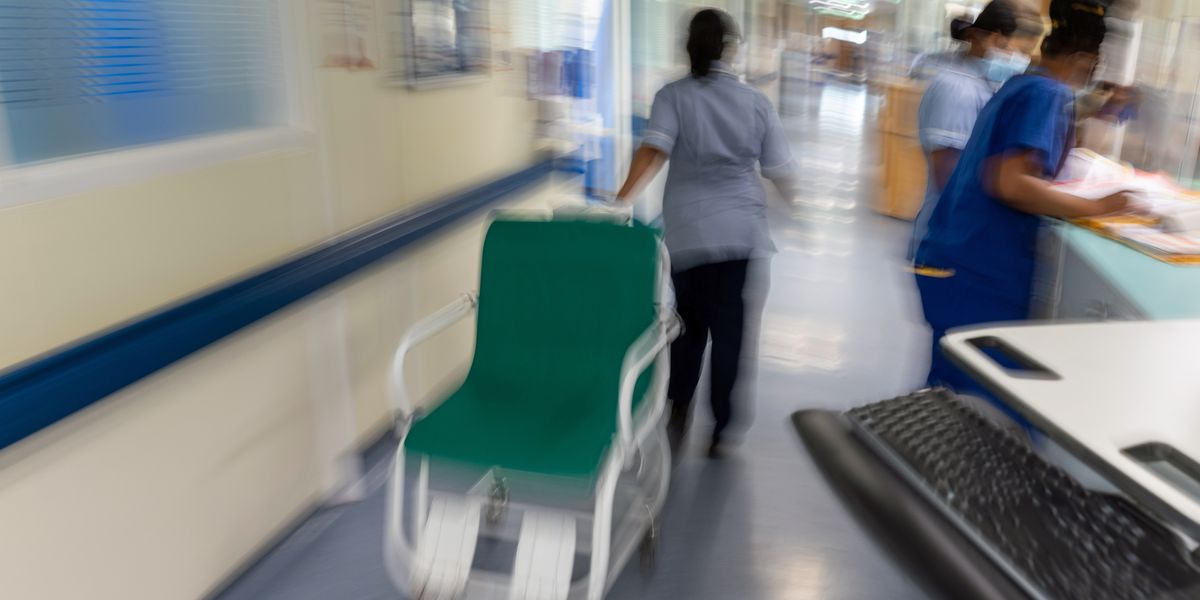NHS Wheelchair Rental Scheme: A Controversial Move at King’s College Hospital
In a move that has sparked significant debate, King’s College Hospital in London has introduced a wheelchair rental scheme reminiscent of the popular "Boris bike" system. Patients who arrive at the hospital without an ambulance and require mobility assistance can now access wheelchairs from a docking station. However, this initiative, which charges £2 per hour after the first four hours of free use, has raised eyebrows and ignited discussions about the state of the NHS and the implications of privatization in healthcare.
The Wheelchair Rental Scheme Explained
The newly installed wheelchair docking station at King’s College Hospital is designed to address the ongoing issue of wheelchair availability. Patients can access a wheelchair for free for the first four hours, but after that, they incur a charge of £2 for each additional hour. The payment is processed automatically through a credit card machine, ensuring that the hospital can track the return of the wheelchairs.
A spokesperson for the hospital explained that the scheme, managed by a private healthcare service called Wheelshare, aims to improve the supply of wheelchairs and encourage patients to return them promptly after use. The initiative is part of a broader effort to ensure that every patient who needs a wheelchair can find one upon arrival.
Patient Experiences and Criticism
While the intention behind the scheme may be to enhance accessibility, many patients and their caregivers have voiced their concerns. Critics argue that the additional costs associated with hospital visits, including parking and now wheelchair rentals, place an undue financial burden on individuals already facing health challenges.
One carer lamented the cumulative costs of hospital visits, stating they had spent nearly a thousand pounds on parking alone within a year. Another individual pointed out the difficulties of accessing ambulances due to long waiting times, forcing patients to drive themselves to the hospital and incur further expenses while waiting in A&E.
The backlash has been amplified on social media, with users expressing their frustration over the perceived commercialization of essential healthcare services. Comments such as, “There’s literally a wheelchair shortage in a hospital,” highlight the irony of charging for a service that should be readily available to those in need.
The Broader Context of NHS Privatization
The introduction of the wheelchair rental scheme at King’s College Hospital is not an isolated incident but rather part of a growing trend of privatization within the NHS. Critics argue that such initiatives reflect a system under strain, where essential services are increasingly being outsourced to private companies. This has led to concerns about the long-term implications for public healthcare and the potential erosion of the NHS’s founding principles.
One user on X (formerly Twitter) articulated the sentiment of many, stating, “The NHS is crumbling, and is being eaten away by constant privatization.” This sentiment resonates with a significant portion of the public, who fear that the NHS is moving away from its core mission of providing free healthcare at the point of use.
Refunds and Transparency Issues
Adding to the controversy, reports have emerged that the process for obtaining refunds for wheelchair rental costs incurred during extended waits for treatment is not clearly communicated. Local website London Centric noted that information regarding refunds was absent from both the hospital’s website and the payment confirmation from Wheelshare. This lack of transparency has further fueled dissatisfaction among patients and their families.
Conclusion: A Call for Change
The wheelchair rental scheme at King’s College Hospital has ignited a complex conversation about the future of the NHS and the impact of privatization on patient care. While the intention may be to improve accessibility and ensure the availability of wheelchairs, the financial implications for patients raise serious ethical questions.
As the NHS continues to grapple with challenges such as long wait times and resource shortages, it is crucial for stakeholders to engage in meaningful dialogue about the direction of healthcare in the UK. The voices of patients, caregivers, and healthcare professionals must be heard to ensure that the NHS remains a system that prioritizes the health and well-being of all individuals, free from the constraints of profit-driven motives.
As the situation develops, it remains to be seen how King’s College Hospital and Wheelshare will address the concerns raised by the community and whether changes will be made to enhance transparency and accessibility for all patients.
